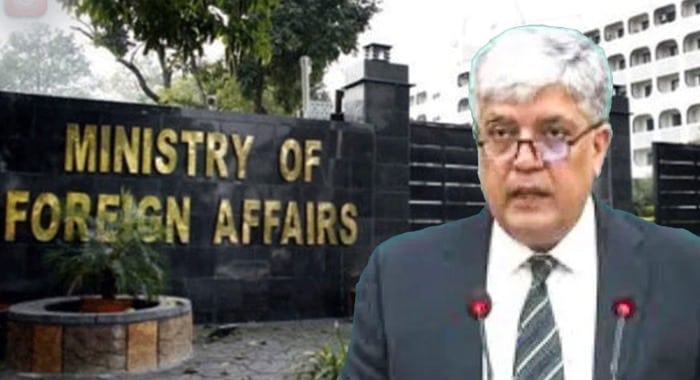Pakistan has strongly condemned Indian Prime Minister Narendra Modi’s threatening and inflammatory statements, describing his remarks as provocative, irresponsible, and a blatant violation of international law. The Foreign Office said Modi’s speech, particularly his suggestion of weaponizing water against Pakistan, represents a dangerous mindset and defies globally accepted principles.
According to Foreign Office Spokesperson Shafqat Ali Khan responded sharply to Modi’s address, stating that India should first confront its own conscience before making global claims. “India is involved in extrajudicial killings abroad, unlawful interference, and state oppression in illegally occupied territories,” the spokesperson asserted.
He further said that the Indian government is promoting hatred and targeting minorities with increasing brutality. “New Delhi must be held accountable and urged to respect international norms and legal commitments,” he emphasized.
Warning of the consequences of ultranationalist politics, the spokesperson said that such rhetoric endangers the future of Indian youth and destabilises peace and stability in the region. “India’s confrontational posture is a threat not just to Pakistan but to the entire region,” he said.
The strong reaction from Pakistan came in response to Narendra Modi’s speech delivered a day earlier in the Indian city of Chandigarh, where he claimed that India had defeated Pakistan in three wars and accused Pakistan of launching a proxy war in return. He questioned whether India should now retaliate with greater force, rhetorically asking, “Should bullets be answered with bombs? Should stones be met with bricks? Should this thorn not be uprooted entirely?”
Modi further alleged that the burial of the militants killed on May 6, with Pakistan’s national flag and military salutes, proved that Pakistan was engaged in more than just proxy warfare. “This is not a proxy war anymore; you are waging war—and the response will be the same,” he warned.
In a particularly alarming section of his speech, Modi also launched a tirade against the 1960 Indus Waters Treaty, claiming that it unfairly restricted India’s rights. He said past Indian governments had failed the country by agreeing not to clean silt from dams built on rivers in Jammu and Kashmir. Modi boasted that while he had merely begun cleaning dams by opening lower gates, this alone had triggered flooding in Pakistan. “I haven’t even done much yet—just said a few things—and they are already drenched in sweat,” he taunted.
Pakistan’s Foreign Office categorically rejected these statements and warned that using water as a weapon is a severe violation of international treaties and humanitarian obligations. “Threatening flood disasters by manipulating river systems is not only unlawful but deeply inhumane,” said the spokesperson.
Pakistan reaffirmed its commitment to peace and international cooperation but made it clear that such aggressive and irresponsible rhetoric from India would not go unanswered. The Foreign Office called on the international community to take immediate notice of India’s inflammatory posture and violations of international law.





